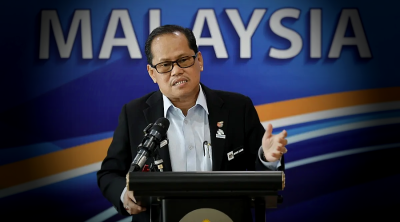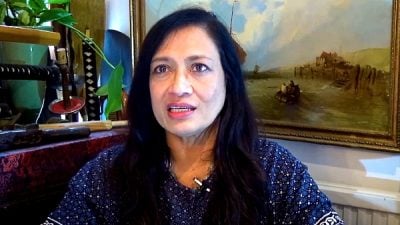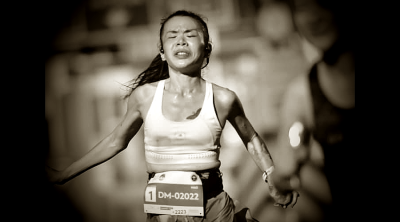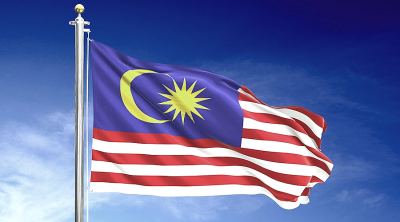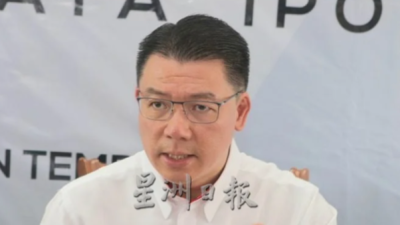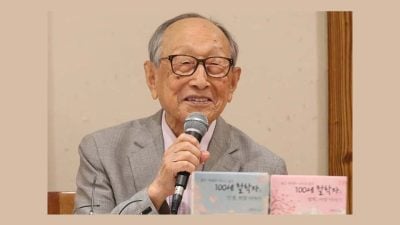
On 12 May, 2018, naval Graduate Cadet Officer, J. Soosaimanicckam reported to the KD Sultan Idris Lumut naval base to begin officer qualification training.
A week later, he was rushed to the Armed Forces Hospital and pronounced dead on arrival.
Today, his father S. Joseph is seeking justice for his son, and the family has filed a civil suit against the navy at the Kuala Lumpur Sessions Court.
It is every parent’s worst nightmare to predecease their children. The tragedy is extremely overwhelming as it goes against the natural order of things. Healthy young men do not suddenly die.
Soosaimanicckam had successfully qualified to undergo officer training, and this would have meant that he had completed all the physical tests and a medical check-up, to ascertain that he was fit for training.
Anyone with underlying medical issues would have been banned from the rigorous training schedule. Moreover, Soosaimanicckam’s family was not aware of any underlying health issues.
The naval cadet was fit and healthy when he started his course.
Soosaimanicckam was only 27 years old and would have been at the prime of his life.
The circumstances leading up to this young man’s death should provide clues as to why he died.
On 16 June last year, the Coroner’s Court declared an open verdict in the inquest into Soosaimainicckam’s cause of death.
Last week, on 29 July, the Ipoh High Court ruled that the cadet’s death was homicide.
Joseph has lodged a report at the Petaling Jaya district police headquarters for a murder investigation to begin, in the family’s complaint against the Royal Malaysian Navy (RMN).
There is also an on-going negligence lawsuit filed by Joseph against 11 Navy officers, the Navy commander, Malaysian Armed Forces Council, the Defence Minister and the Malaysian government.
The testimonies of witnesses have revealed a catalogue of errors, a lack of transparency, the indifference of some naval training officers, and uncontrolled bullying by others.
It has also highlighted the incompetence of some public servants and professionals.
First. Several training officers refused to allow Soosaimanicckam to see a doctor. Why?
Soosaimanicckam’s former fellow cadets testified that the training officers refused the cadet’s request for medical help, despite exhibiting symptoms of being unwell.
One officer would sit on the cadet’s stomach and repeatedly punch his face, others would beat him up even though they knew his health had worsened.
Despite seeing his health deteriorate, they denied him medical help until it was too late.
Second. The testimonies of Soosaimanicckam’s former fellow cadets have exposed institutionalised bullying, racial discrimination, harassment and neglect by the Navy.
How common is bullying, racism and neglect?
The cadet’s superiors at KD Sultan Idris allegedly targeted him because of his race and his inability to compete with other trainees during training.
They refused to grant him sick leave because they said he was pampered.
He was assigned four trainers whilst others only had one. They made him do more push-ups and star jumps, whilst making fun of him during training.
The testimonies of Soosaimanicckam’s former fellow cadets have exposed institutionalised bullying, racial discrimination, harassment and neglect by the Navy.
Third. An expert forensic pathologist questioned the competence of the medical officer (MO) who performed the autopsy, and the MO’s failure to conduct proper tests.
Dr. Bhupinder Singh said the cadet had died from multi-organ failure due to leptospirosis, a water-borne disease spread by rat urine.
Soosaimanicckam could have avoided severe complications and death had he been given antibiotics as soon as the symptoms were exhibited.
Dr. Singh disagreed with the post-mortem report that Soosaimanicckam’s death had been due to pulmonary oedema.
He said the pulmonary oedema was just a finding, and should not be singled out as the cause of death.
He accused the MO of an incorrect diagnosis and said that he lacked training.
Why did the MO fail to prepare blood and urine samples, including samples of the liver, kidneys, adrenals and spleen for histopathology testing, all of which are crucial for an accurate diagnosis?
He also questioned the failure to engage a trained forensic pathologist to conduct the post-mortem, especially as the cause of death was not obvious.
Fourth. The Ipoh High Court judge’s ruling a few days ago has zeroed in on the competence and lackadaisical attitude of the coroner whom last year declared an open verdict into the cadet’s death.
Justice Abdul Wahab Mohamed of the Ipoh High Court ruled that Soosaimanicckam’s death was a direct consequence of the navy officers in charge of his training, as they had denied him medical treatment.
Will his criticism of the coroner act as a wake-up call for everyone in public service to improve their performance and professionalism?
The judge said, “With the greatest of respect, the learned coroner took the easy way out (by) coming to an open verdict without considering the evidence before her.”
When details first emerged of the disturbing events that led to the naval cadet’s death, Soosaimanicckam’s father demanded transparency and an explanation, but neither the RMN nor the Ministry of Defence gave him any.
Instead of being cooperative and compassionate, both the RMN and Mindef stonewalled Joseph on the questions he asked.
Soosaimanicckam’s pride and joy was to join the navy and serve his king and country, but to die an untimely death had left his family, especially his parents, in despair. They need closure.
Like his parents, the nation is also desperate for answers to the many unanswered questions.
Sources:
- New Straits Times: Senior officer sat on naval cadet officer’s stomach and repeatedly slapped him, witness tells court
- Free Malaysia Today: Cadet was target of officers during training, says witness
- The Star: Post-mortem called into question
- Malaysiakini: Navy cadet looked tired, unwell but physical training continued: witness
- Astro Awani: High Court rules navy cadet’s death a homicide, reverses Coroner’s verdict
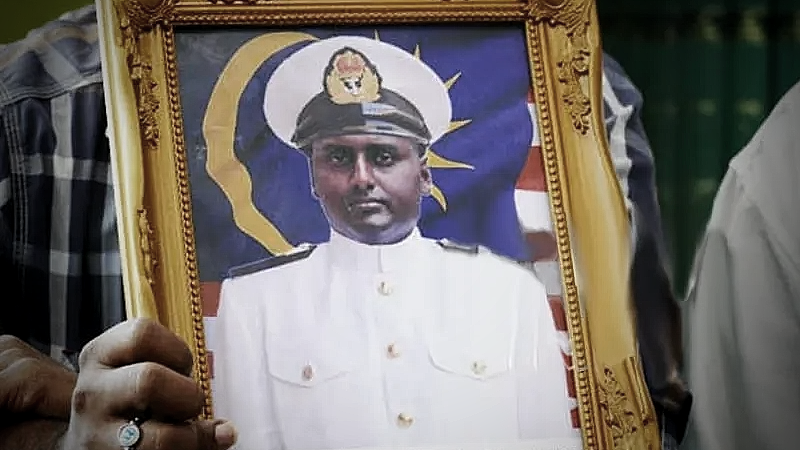
(Mariam Mokhtar is a Freelance Writer.)
ADVERTISEMENT
ADVERTISEMENT








